#so i contrived a plot just to satisfy those conditions
Text
i have a crazily elaborate au premise i outlined for a fic i was planning on writing for a pairing three fandoms ago and i'm seriously considering adapting it to fit hrpf now
#ugh i was so obsessed with it i remember now#beachside summer vacation town where the entire populace is magical except for the mc who is staying there for the summer after college#to save up money by staying at his friends place and working as a lifeguard not knowing about the magical nature of the town#but then one night he's walking back home from a party and gets knocked to the ground and bit on the neck by a shadowy figure#and he wakes up the next morning somehow in bed and his neck is totally fine but he's definitely late for his shift so he bolts out of bed#and tries running to the beach but uhoh! the sunlight is making him physically ill!#and he chalks it up to a nasty hangover#but it doesn't go away#and anyway eventually he finds out that he was turned into a vampire#can you tell that i cooked this premise up when i was a seventeen year old obsessed w kpop#and thought that a vampire being forced to be a lifeguard at a bright ass beach would be super funny#so i contrived a plot just to satisfy those conditions#ANYWAY#trevor/jamie?#seems like it fits?#again i am not a ducks fan nor do i find trevor particularly charming at all#but jamie is#and theres so much good summer-based fic for those two summer boys#my writing#RAMBLING
1 note
·
View note
Text
25 Best Films of the 2010s
Admittedly, it has been a very long time since I updated this blog. However, given that we have just come to the end of an exceptionally great decade of film, I wanted to reflect on which films from the 2010s have stuck with me the most. This is of course a very personal list, and I haven’t seen half the movies that I wanted to in the decade. But on the first day of 2020, here are the 25 films I consider the best of the 2010s. If you’re inclined to comment, let me know what your favorites were!
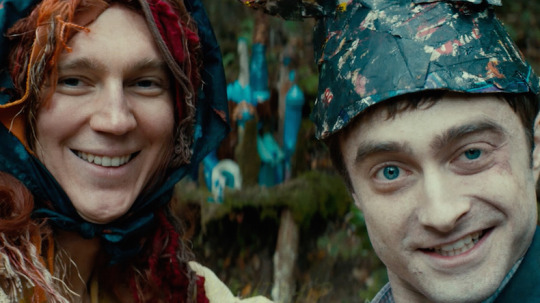
1. Swiss Army Man - This surreal, bizarre comedy has such an eclectic mix of gross-out humor, emotional depth, and spectacularly original visual imagination that I honestly couldn’t imagine putting anything else in the #1 spot.

2. First Reformed - Paul Schrader returns to the transcendental style of classical filmmaking he had studied early in his life, and the result is a film that considers the human condition more seriously than just about anything else in a long time. Ethan Hawke gives a career-best performance, which is saying a lot.

3. Moonrise Kingdom - I always use this film to introduce the film unit of my freshman writing class, meaning I’ve seen it about 8 times or so. It never gets old. It was the movie that really made Wes Anderson click for me, and enhanced my appreciation of his work (and indeed, of cinema in general) to a new level.

4. Calvary - A dark, funny, intensely moving study of a moral dilemma in the life of a priest in Ireland. Absolutely amazing writing and a masterful performance by Brendan Gleeson. Somehow, John Michael McDonagh, the film’s writer and director, then went on to make War on Everyone, one of the worst films of the decade.

5. Lady Bird - Greta Gerwig’s debut movie was an extremely funny, warm, and true-to-life film that artfully and economically created as believable an on-screen world as I’ve ever seen. The film has enormous empathy with every single one of its sizable cast of characters. Gerwig is a major talent.

6. Arrival - Denis Villenueve made a lot of great films this decade (Prisoners, Blade Runner 2049, Enemy, Sicario), but none were better than this intellectually and emotionally brilliant work. As a bonus, it got me into reading Ted Chiang, who is now one of my favorite writers.

7. A Ghost Story - David Lowery also had some exceptionally strong work this decade (The Old Man & the Gun, Pete’s Dragon, Ain’t Them Bodies Saints), but the best and most distinctive was this film, which featured Casey Affleck as a ghost in a white sheet who can’t leave the house he shared with his wife (Rooney Mara). This film did more interesting things with cinematic time than any other this decade, and felt like an actually successful version of what Terence Malick tried (but in my opinion, failed) to achieve with The Tree of Life.
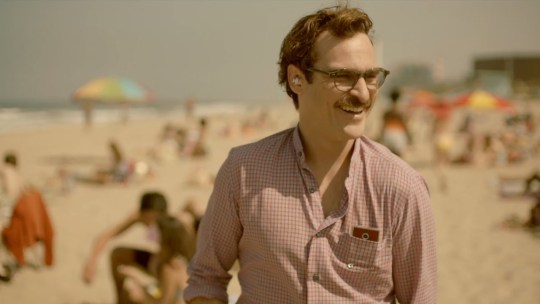
8. Her - One of the most profound romantic films ever made. Most romantic comedies play around with relationships as plot elements, but this one actually asked what a relationship even is in the first place.

9. Phantom Thread - The only movie to ever actually make me say, “What the fuck?” out loud in the theater. In a good way.
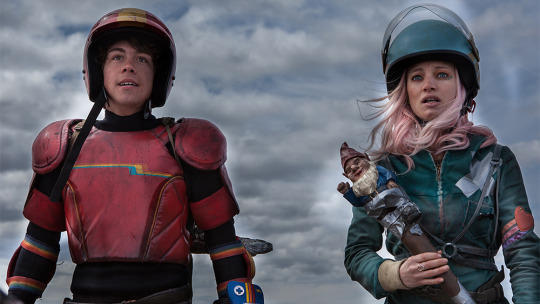
10. Turbo Kid - A wonderfully entertaining low-budget indie movie that mixed irony, sincerity, nostalgia, pastiche, humor, and gory violence into something truly singular.

11. Scott Pilgrim vs. the World - One of the most purely fun films ever made in terms of visual style. Edgar Wright’s meticulous attention to mise-en-scene, editing, and visual effects has never been put to better use than it was here.
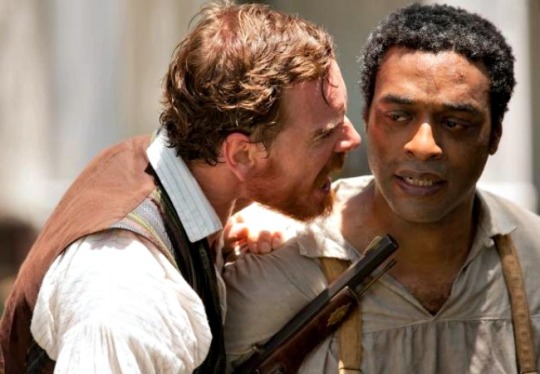
12. 12 Years a Slave - The best historical film of the decade, one that used art-house style visuals, stern filmmaking discipline, and major Hollywood actors to create an extremely convincing and harrowing portrayal of slavery.

13. Room - One of the most moving films of the decade, and Brie Larson was a deserving Oscar winner for this one.

14. The Paddington films - The cutest, cuddliest, most sweetly entertaining kids’ movies in a very long time. Both films are essentially perfect in their charm and their surprisingly elaborate attention to visual craft. I can’t wait for Paddington 3.
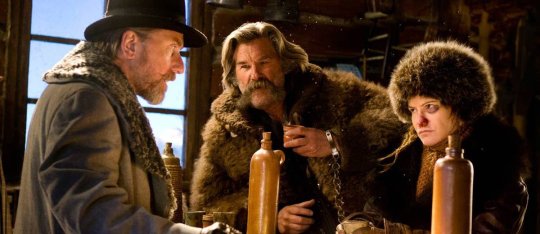
15.The Hateful Eight - Everyone knows the over-the-top violence in Quentin Tarantino’s other films is largely played for fun and laughs, and I enjoy it as much as anyone. However, I think he was doing something distinctly different here, something much darker and more morally serious. Jennifer Jason Leigh’s performance was one of my absolute favorites of the decade.

16. The Lobster - Few films are this original, this dark, or this bitterly funny. I really gelled with Yorgos Lanthimos’s distinctive style in this movie, and thought Colin Farrell, Rachel Weisz, and the other actors all landed on the perfect wavelength for their performances.

17. Logan - People talk constantly about the Marvel Cinematic Universe movies, and it is very true that those films as a group achieved something truly unprecedented and highly enjoyable in the 2010s. In terms of individual films, though, the best superhero movie this decade (and maybe ever) was Logan, which gave an extremely satisfying conclusion to Hugh Jackman’s 17 years with the character.

18. The John Wick series - The John Wick films are undoubtedly some of the most technically proficient and stylistically accomplished action films ever made. The plot is so simple as to be a joke, yes, but the action is executed with such an incredibly high level of skill and dedication that you simply have to respect the people who put this madness together.

19. Blade Runner 2049 - Some of the most visually stunning cinematography and visual effects I’ve seen, smartly put in service of a strong story that does actually live up to the legacy of the original.

20. Cloud Atlas - Sure, you could pretty fairly say that this movie was cheesy, messy, silly, and missed some of the elements of the book. But dammit, it was truly ambitious, and the Wachowskis (one of whom had transitioned before the making of the film, and the other of whom did later) really did put their hearts into it.

21. The Favourite - Lanthimos further develops the weird style I had liked so much in his earlier films, but this time puts it in the service of a slightly warmer and more accessible story than before. Olivia Colman gave a truly astonishing performance.

22. It Follows - My favorite horror movie of the decade, even more than Hereditary, Get Out, or Midsommar. I found the premise ingeniously frightening, and thought the direction, mise-en-scene, and performances really helped develop the film into a singular horror achievement.

23. Dunkirk - I would actually argue this is one of the best war films ever made, maybe even the best one, precisely because it does away with most of the cliches and contrivances and narrative devices common to most war films in favor of simply creating two hours of an ever-escalating “We need to get out of here right now” feeling. By abandoning so many trappings, it managed to feel more real than almost any other war film.
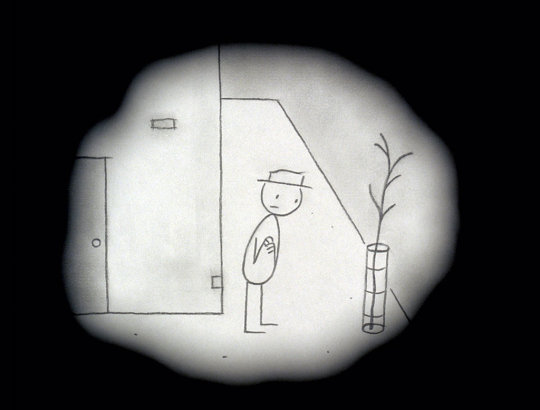
24. It’s Such a Beautiful Day - This film got me into Don Hertzfeldt’s work, and now he’s someone I’m keeping an eye on forever. This is intense, weird, emotionally powerful stuff, all done with stick figures.

25. Parasite - A perfect film from beginning to end. There’s not one frame out of place, and no way I can imagine Bong Joon Ho and his collaborators having made this film any better than they did. They should teach this one in film school forever.
14 notes
·
View notes
Text
Consolation Marriage by Kim Luperi
I will watch the effervescent Irene Dunne in anything, no matter the role—especially if it’s a pre-Code or comedy; she exudes a natural charm that makes her performances satisfying. So, choosing to view CONSOLATION MARRIAGE (’31), an unfamiliar pre-Code dramedy, was a no-brainer for me. In the movie, Mary (Dunne) and Steve (Pat O’Brien) befriend each other while wallowing in misery after their respective sweethearts marry others. Their shared heartbreak and burgeoning friendship lead them into matrimony… on the condition that they are free to see other lovers, which makes things interesting as their feelings develop and their exes re-enter their lives.

Aside from my self-professed love for Dunne, I appreciated this movie’s progressive portrayal of relationships before the inevitable happy ending, and I actually found the movie more enjoyable than anticipated, given its rather mediocre reviews from modern audiences. In fact, surprises abounded both within CONSOLATION MARRIAGE and outside the film, specifically having to do with O’Brien and Dunne’s chemistry and the movie’s censorship history.
The unexpected commenced right when I spotted O’Brien’s name. ‘What an odd pairing,’ I thought. At the time, I was more familiar with the actor in tougher, snarkier roles (1933’s BUREAU OF MISSING PERSONS, for instance) and had never thought of him as a romantic lead. Well, CONSOLATION MARRIAGE changed that, as O’Brien’s easy rapport with Dunne made them an absolutely delightful pair. Though classified as a drama, certain scenes in the picture, many occurring before they wed, played with a frothier air, which is where the leads’ wit shined and their chemistry became palpable—it really seemed like they were pals just having a grand old time. (Incidentally, Dunne and O’Brien were friends in real life, and Dunne was even godmother to O’Brien’s son, Terry.) To be honest, without Dunne and O’Brien’s proficiency in both drama and comedy, I’m not sure the script’s swings in tone or occasional sappiness would be as palatable as I perceived them to be.

Another revelation came with the fact that both Dunne and O’Brien made their Hollywood debuts in 1930, one year before CONSOLATION MARRIAGE hit theaters. Despite this movie receiving mixed reviews, outlets such as The New York Times and Film Daily made mention of the picture’s human quality, a point I would give credit for to the story, direction and certainly Dunne and O’Brien, who skillfully imbued their characters with those attributes so early in their respective careers.
An additional surprise arose when I opened the film’s Production Code Administration (PCA) file at the Academy’s Margaret Herrick Library. With adultery an expected outcome to this marriage of convenience, I was sure the Studio Relations Committee (SRC), the precursor to the PCA, would have cautionary words for this movie; I mean, doesn’t the fact that they invite each other to have an affair disrespect the sanctity of marriage? I guess not, because to my shock, no issue was taken with the portrayal of matrimony. In fact, the office bestowed the film a glowing review: “This picture is utterly charming from start to finish. The dialogue is fresh, amusing, whimsical while beneath this surface flippancy lies a human and appealing story made more real and vivid by the sincerity of the acting. Family audience.” Ironically, the movie faced more heat over the fact that verbiage pertaining to childbirth was so direct. The office recommended to edit the lines “We had a baby last week” and “You’re having a baby,” indicating the SRC found this natural, normal marital occurrence more insidious than the sham union of the central plot. It seems that the censors were blinded by the film’s charm; the characters could talk the talk, but since they didn’t walk the walk and eventually came around and respected their bond in the end, it was all good… apparently.
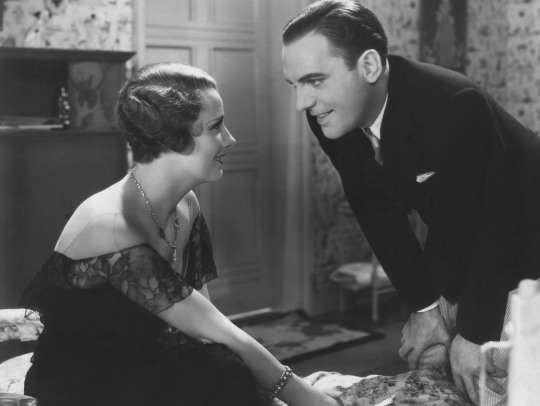
CONSOLATION MARRIAGE is by no means a perfect picture—the whole situation is a bit contrived, there are lulls in pacing and some maudlin dialogue—but the movie took me by surprise, and I was utterly taken with the charms of the performers, particularly Dunne and O’Brien. And to me, that’s usually worth more than textbook perfection.
37 notes
·
View notes
Photo

Letter by Padre Pio: ON REIGNING WITH CHRIST
Story With Image:
https://www.linkedin.com/pulse/letter-padre-pio-reigning-christ-harold-baines/?published=t
In letter seven, dated 13 May 1914, Raffaelina Cerase wrote to Padre Pio that she had delayed in responding with him because she wanted to give him some good news. She also tells Padre Pio that Jesus permits her to tell him of the many conflicts and tears, failings and discouragement, miseries and deep darkness. "At the foot of this mournful picture of my life I wish I could add just two words: love and sacrifice. Instead, I am very far from this. The Crib, Calvary and the Tabernacle show me the way; they urge and attract me to the true life, but I am deaf, blind, wicked, in I resist. When shall I make up my mind?"
She goes on to relate some good news on the family front and a reconciliation with her brother Matteo. She continues to worry about her sister Giovina about approaching the Eucharistic table more often and how Raffaelina cares deeply for her and that her sister is the only holy affection that Jesus has left her on this earth. Raffaelina also wants to know how to make reparation, expiate and atone for both herself and for her sister.
Since Padre Pio refuses all expression of thanks she expresses how extremely good he is who treats her with such very great charity and indulgence and that she wishes to thank Jesus for it through him. Raffaelina also mentions Padre Pio's seraphic patience in her writings to him. She also goes on and speaks about the imperfect meditations of mind and how Padre Pio can clarify them with Jesus. Realizing that she is a presumptuous and indiscreet person she asks for the confidence to be able to speak to her good Father, the confidence of a stubborn and wicked patient towards her compassionate and charitable physician. She again expresses her desire for prayers for her sister, friends and relatives, which Padre Pio is well aware of. Finally she expresses her desire to see and hear the Creator alone.
The response Raffaelina receives from Padre Pio is a letter dated 19 May 1914. In the letter Padre Pio reveals the following:
Beloved daughter of Jesus Christ,
May Jesus and Mary be always in your heart and may they make you holy.
By repeated blows of the efficacious chisel and by diligent polishing the divine Artist prepares the blocks of stone which are intended to form part of the divine edifice. Thus sings our most tender mother, the holy Catholic Church, in the hymn of the Office for the Dedication of a Church (Hymn at Vespers in the old Divine Office), and this is very true.
Every soul intended for eternal glory can very well be considered a stone destined for the erection of the eternal edifice.
The soul that is destined to reign with Jesus Christ in eternal glory, then, must be remodeled by the blows of hammer and chisel. But what are these blows of hammer and chisel by which the divine Artist prepares the stone, that is to say, the chosen soul? Dear sister, these strokes of the chisel are the shadows, fears, temptations, spiritual torments and agitation, with a dash of desolation and even of physical pain.
Thank the infinite mercy of the eternal Father, then, for treating your soul in this way, for it is destined to be saved. What I say is, why not rejoice at this loving treatment by the best of all fathers? Open your heart to this heavenly Physician of souls and abandon yourself with complete confidence in His most holy embrace. He is treating you as one chosen to follow Jesus closely up the Hill of Calvary and I observe with joy the keenest emotion this action of grace in you. Be quite sure that all that is going on within your soul is decreed by the Lord and for this reason you must not be afraid of acting wrongly, in a word, of offending God.
Let it suffice for you to know that in all this you are by no means offending the Lord and that, on the contrary, He is glorified all the more by it. If this most tender Spouse hides from your soul, it is not because He intends to punish your infidelity, as you imagine, but because He wants to test more and more your faith and steadfastness and at the same time to purify you of certain little attachments which to the eyes of the flesh do not appear as such. I am speaking here of those affections and faults from which not even the righteous are exempt, for it is written in the holy pages that a righteous man falls seven times. (Prov 24:16).
Believe me, if I did not see you so disconsolate, I should be less satisfied, for I should see the Lord bestowing less jewels on you. Hold firm, then, and banish as temptations all doubts on the subject, for they are really temptations. Do this in the name of Jesus on whose behalf I tell you that in all these spiritual combats you are not offending God, you are not committing sin and your soul derives much profit from it all.
Once more, get rid of all those doubts which are clouding the heavens of your soul, such as the idea that you are deaf to the divine call, that you resist his tender invitations, that you yourself are the only obstacle in the way of perfection on the part of your sister, for this does not come from the good spirit but consists in the devil's cunning attempts to turn you aside from your purpose, or at least to make you pause in your progress towards perfection and lose heart.
I hope I have said enough on the subject and that you will heed what I say. I urge you to pray continually to the heavenly Father that He may always keep you close to His divine Heart, that He may make you hear His loving voice more and more clearly and lead you to correspond with increasing gratitude. Ask Jesus with boundless confidence, like the bride in the Song of Solomon, to draw you after Him and let you smell the fragrance of His anointing oils (Cf. Song 1: 3-4), so that you may follow swiftly with all the faculties of your soul and body wherever He goes. (Cf. Rev 14:4).
I exhort you once more to abide steadfastly by all that I have told you up to the present, to believe that this is how the matter stands, namely, that the raft which conveys us to the haven of salvation, the divine weapon which leads to victory, consists in full and unquestioning submission of our own judgment to the injunctions of the one to whom is entrusted the task of steering us through the shadows, perplexities and battles of life. Holy Scripture itself confirms this with infallible authority: The obedient man will speak of victory. (Prov 21: 28 [Latin Vulgate]).
If Jesus manifests Himself, thank Him and if He remains hidden, thank Him just the same: all is a trick of love. I earnestly hope that you will come to breathe your last with Jesus on the Cross and with Him softly exclaim: It is finished. (Jn 19: 30).
Your desire to feel the Creator alone in all things and the tedium you experience in approaching and dealing with creatures is a most singular grace of the divine mercy which is not granted to all poor wayfarers. Make sure, then, that you know how to profit by it and thank God for it. Don't listen to what your imagination tells you, for it is upset and powerfully attacked by our enemy, who wants you to consider your life unproductive of good. This is merely a clever plot contrived by the devil. The grace of Jesus, my dear, makes you only too watchful with regard to what is good. You are trying to measure, understand, feel and touch this love you have for God, but, my dear sister, you must accept as certain that the more a soul loves God the less it feels this love.
The thing seems too strange and impossible in the case of transient love for creatures in this poor world, but when it is a case of love for the Spouse of the soul, things are very different. I am not able to explain this truth very clearly, by you can take it as certain that the matter is as I have said. God is incomprehensible and inaccessible; hence the more a soul penetrates into the love of this Supreme Good, the more the sentiment of love towards Him, which is beyond the soul's knowledge, seems to diminish, until the poor soul considers that it no longer loves Him at all.
In point of fact, in certain instances it seems to the soul that this is really the case, but the events prove the very opposite. That continual fear of losing one's God, that holy circumspection which makes one look carefully where to place one's feet so as not to stumble, that courage in facing the assaults of the enemy, that resignation to God's will in all life's adversities, that ardent desire to see God's kingdom established in one's own heart and in the hearts of others, are the clearest proof of the soul's love for the Supreme Good.
No, your love is not indolent, nor is it sterile. You ought rather to say that you love your heavenly Bridegroom, but that you want that love to grow continually.
The divine Master has left us in writing the injunction to recognize as our brethren those only who do the will of His Father. (Cf. Mt 12: 50). Well, then, do you not desire and make every effort to conform at all times to the divine will? Would you not give your life a thousand times rather than resolve to go against God's will? You are quite sure of this and you feel it in your heart. Let this, then, be the touchstone by which you recognize and convince yourself that your life is well spent.
Oh, how far you are from that which your feelings would lead you to believe! You love this most tender Spouse, but this seems very little to you because you desire to love with a perfect and consummate love. To us wretched and unfortunate mortals this love, at least in its fullness, is only granted in the next life. O wretched condition of our human nature! May our heavenly Spouse break through this thinnest of thin veils which separates us from Him and grant us at last that perfect love; otherwise our life is no longer life, our illness incurable and our sojourn here below a most bitter and prolonged agony.
You have interpreted too rigorously the sentiments I expressed when I wrote to you about your sister. I never once doubted that her soul is pleasing to the Lord. All I said was that I disapproved of her conduct with regard to the Eucharistic table. In these sad times when so many souls are turning away from God, I cannot convince myself that anyone can live the true spiritual life without the food of the strong. In these days in which we are continually surrounded by people who harbor hatred for God in their hearts and who blaspheme continually, the sure means of remaining immune from this pestilential disease is to strengthen ourselves with the Eucharistic food.
Now, to remain immune from sin and make progress on the path to perfection is not possible for those who remain for months on end without partaking abundantly of the immaculate Flesh of the divine Lamb. I do not know what others think about this, but to me it is very clear that in the circumstances in which we live at present, for those who limit themselves to receiving Communion once or twice in the year, it is illusory to want to convince themselves that they can take even one step towards perfection.
I cannot tell you how distressed I am about your sister's health and only the Lord knows how much I pray for her spiritual rather than her corporal well-being. May my feeble but constant prayers be acceptable to the One who rules over and governs all things, for our welfare and his glory. She is lucky, though, to have been made worthy through no merit of her own to share the Cross of the One who for pure love for us immolated Himself to the eternal Father.
I never cease to present to Jesus all those persons and all the needs which you have so much at heart.
You complain that I don't answer all your questions and you chide me gently on this account. All I can do is ask your pardon and beg you not to be angry with me, for I am not to blame. For some time past I have been suffering from forgetfulness, despite all my good intentions to satisfy every demand made on me. I am told that this is a very special grace of the heavenly Father, but is this a fact? (See Letters, Vol. 1, No. 169).
The Lord only allows me to recall those persons and things He wants me to remember. In point of fact, on several occasions our merciful Lord has suggested to me people whom I have never known or even heard of, for the sole purpose of having me present them to Him and intercede for them, and in this case He never fails to answer my poor feeble prayers. (See Padre Pio's letter to Padre Benedetto, from Pietrelcina on 20 December 1913: Letters, Vol. 169; ibid., No. 250). On the other hand, when Jesus doesn't want to answer me, He makes me actually forget to pray for those persons for whom I had firmly decided and intended to pray for.
This forgetfulness frequently extends even to the things most necessary to our human nature, such as eating, drinking and the like. I thank divine Providence in the meantime that I have never been led to forget the obligatory duties of my state.
Judge for yourself, now, if I am guilty or worthy of your compassion. I exhort you, however, when you do not receive a reply to some question, to be so good as to remind me the second and third time, without any human respect. If in such cases you do not receive satisfaction, then adore the divine judgment and do not doubt that if He allows you to remain in the dark on these matters it is for your own good. He will not allow any good thought of yours to go unrewarded.
I cannot reply adequately to the question you state as follows: "I don't know why it is that almost invariably in my brief and imperfect meditations my mind turns on what I must say to Jesus through you," because I don't quite understand your question. If possible, please explain yourself more fully. For the moment it is enough for you to know that in this I don't see the slightest shadow of anything wrong.
For several days past I feel as if my soul were tightly bound by an iron band. Pray, therefore, to the most bountiful God to give me the strength to conform meritoriously to this burdensome desire of his. I shall be eternally grateful to you if you add to these prayers the three novenas to Our Lady of the Most Holy Rosary of Pompeii with the Communions you receive in the meantime, all according to my intentions, to obtain a grace which I await from the Lord's goodness, a grace which to me seems to be for the glory of Jesus. However, if all this is seriously inconvenient for you, just dispense yourself from it.
I am obliged to end here for reasons which are well know to you.
May God bless you along with your sister and may He calm your sufferings. May He turn His merciful eyes upon you and console you by His compassion.
Fra Pio, Capuchin
Reminder: The contents of this letter is specific between Raffaelina Cerase and Padre Pio. Someone else having similar problems may receive different answers from Padre Pio.
“Calm yourself, and rejoice, because in all this it is the Lord who is acting within you.” - Padre Pio (Caption for linked image)
2 notes
·
View notes
Text
Obikin Fanfiction Recommendations
I’ve been thinking about typing this up for a while now.
This is by no means an extensive or exhaustive list. These are simple a few fics that I remember vividly for various reasons. Many of theme are masterpieces in their own right without the added benefit of being fanfiction. And many are fics that I have read over and over again. These are also fics that have inspired me to to my own writing.
Please also keep in mind that these recommendations will include some constructive criticism. While I love them all, there are comments that I think need to be said in any recommendation. I’m not going to be adding warnings (those are in the links) but I want to give a larger picture of the piece besides fawning over how much I love it.
There are many fics that are not on this list that I actively read and love and I’m always looking for more! I have excluded works that I love but are in the beginnings of their development as a cohesive story. This list also does not include any tumblr ficlets. I love those too but they are more difficult to keep track of. If you follow me, I tend to reblog everything I love so you can find more that way. If you have any recommendations to send me, please do!
I have tried to tag authors when I know them on tumbr.
In no particular order:
His Face in the Rearview Mirror by starscry
The car breaks down a week and a half into his trip.
What a beautiful AU. Fast cars, sexual tension and a great retelling of TPM. I’m drawn to this fic for its detail and mood. I can feel the heat of the desert in every scene. I can envision Anakin’s upbringing in the descriptions. I desperately want them to justkissalready the entire time; there is a fantastic level of tension throughout the narrative. This is the type of short but fulfilling read I go back for many times. Its currently on hiatus but I’m crossing my fingers that starscry will finish it soon.
Fringe Believers and Hopeless Wanders by iiscos
A Jedi falls in love with a kind, but poor mechanic aboard the luxurious, ill-fated R.S.C. Terranova. A Star Wars/Titanic AU
This fic is definitely an inspiration for my own writing. Its paced fabulously with a steady rise of plot and tension. And while it follows closely to the original plot of Titanic, all the Star Wars details are fleshed out in loving detail. It also has the same feel as Titanic; a romance that doesn’t make any logical sense but that is captivating none the less. Unfortunately, this fic is also on hiatus it seems as the author seems to have moved on to other fandoms. However, keep in mind the original tags were ‘happy ending’ so I’ll go with that. :)
Favorite line: “ Obi-Wan in his formal Jedi robes, clean and simple against the lavish backdrop, searching for familiar faces in the dining saloon.” For some reason this image keeps with me. I liken it to the line from the RotS novel in which Obi-wan stands in the expanse of carpeting in Padme’s apartment looking lost. The parallels reduce me to a sobbing fool.
wicked thing by imaginarykat
There are rumours of yet another Sith Lord hiding among the Separatists. The Council sends Anakin to investigate. Anakin has a bad feeling about this.
or,
the story of how Anakin exists in a perpetual state of intense embarrassment, Kenobi is enjoying it a little too much, and everything is, generally speaking, a gigantic mess.
Ah yes. The opus of the Sith!Obi-wan movement. May we be forever blessed. This fic sucks you in from the very first moment. The insight the reader has into Anakin’s mind is a fabulous take on his character and I love the inanity he brings. Oh course, the whole plot is rather contrived; but that’s part of the fun. Fanfiction is for nothing more than indulging our every whim and a myriad of possibilities. I particularly enjoy that we’re meant to not fully understand whether or not Kenobi is using Anakin or not. And whether or not Anakin is already his apprentice or not. Unfortunately, the last few chapters have been lacking direction for me. But I’ve still enjoyed reading them and still look forward to experiencing the story with the characters. Not all obikin needs to be sadness and flames.
Favorite line: “His mouth opens to speak even though his mind seems empty of all thought; only one word escapes his lips, one that tastes of defiance and submission and fire all at once.“Master.” “ Hot damn yes. This is why I come here!
Ad Verecundiam by DarthSnug
Time Traveling Sith Lords seems like a matter for the Council, so Obi-Wan puts the man’s sudden arrival at the Temple out of mind. He has other things to worry about after all: his Trials, for one, and his former Master’s stubborn insistence that young Anakin Skywalker must be trained.
Then the Council approaches him, saying that their reluctant darkside guest is specifically asking for him, and in standard fashion, Knight Kenobi finds himself getting into all sorts of terrible trouble without much backup at all.
This is probably the least developed fic on this list. Only three chapters in, however, and I’m hooked. So far, it hasn’t gotten caught up in extraneous scenes or pointless divergences to the plot and I’m hoping it continues to do so. I’m enjoying, despite the fantastical nature of the canon divergence, the reality of the narrative. Characters have reasonable and relate-able reactions to outside influences. The Council is appropriately suspicious, Kenobi is appropriately obeying the Council’s orders-but-not-really. I’m excited to see where this is going especially as Vader is clearly not necessarily remorseful about his actions. He hasn’t turned into the good-guy yet. I think we all forget what a Sith is supposed to be canon. They aren’t just dangerous and handsome, they have ugly goals. I’m hoping that this fic explores that option.
Solider, Poet, King by @glare-gryphon
Second chances are very rarely given, but the Force smiles upon two of its favorite children and returns them to a time before their actions have met their consequences. Anakin Skywalker, also known as Darth Vader, seeks redemption while Obi-Wan “Ben” Kenobi, disillusioned with the Jedi Order and its Code, falls to the Darkness. Trapped out of time, Master and Apprentice must once again work together to stop Sideous’ plans from reaching fruition and bring Balance to the Force—all the while dodging the Jedi, the Sith, and their feelings for each other.
I admit, I’ve re-read this at least ten times. It came with me on the plane to Thailand, comforted me next to the fireplace this holiday season and was there for rainy days this spring. This is a fic I cannot gush about enough. The first time I read Chapter 1, I thought ‘oh this sounds interesting, if cliche.’ But then i was hooked. Glare, in all their writing, adds such a depth to the characters without distracting lines of exposition. As the reader, you’re desperately on Anakin’s side hoping that he finally gets his happy ending. And you feel Ben’s pain on having to live again. You want them to succeed. This is compounded with the spiraling-out-of-control relationship Padawan Obi-wan has with Qui-gon and the ongoing fight against Sideous.
I am worried that this fic has gotten too large and that there are too many spinning wheels to pull together in the end. But that hasn’t dampened my ability to enjoy it as it is. And I’m not sure if this is intended (although I certainly enjoy it), but there is an underlying strain of ‘wrongness’ about Anakin and Ben’s relationship. This isn’t a happy story, I think. I don’t want it to be happy.
Favorite line: “ Vader’s durasteel wrist is pinned to the stone by one of Adelfos’ boots, preventing the younger Sith from moving. His back is to Obi-Wan like this, but the Padawan can see Vader’s face through the man’s legs. Whatever Vader sees when he looks up into the man’s cowl, the shock hits him like a speeder. Blood drains from the Sith’s face and he’s trembling, mouth opening and closing like he’s trying to form words but doesn’t quite know what to say.” This line gives me chills every time. I love feeling Anakin’s surprise though the lens of Padawan Kenobi. Beautiful.
as good a place to fall as any by @glimmerglanger
Obi-Wan and Anakin are sent to find a rumored weapon from the Old Republic on a mission directly from the Jedi Council, taking them away from the front lines at a vital time. During the course of the mission, they find far more than trouble than the anticipated and stumble into a series of events that leads to unintended attachments, misunderstandings, a fierce love affair, bloody victories, and an eventual end to the Clone Wars…
I’m a big fan of a/o/b fics done well and this one is fantastic. While the dynamics are certainly part of the story, it is more focused on the emotional relations between characters in the backdrop of a war. Each chapter is almost a mini story with a full plot and satisfying ending. It does have that same feeling of a story arch in the Clone Wars where you know the main conflict will be resolved even as the over-arching conflict (Anakin and Obi-wan’s relationship) continues on.
And I can’t say enough about the tiny world building elements that glimmer adds. In the first chapter, they focus on the a/o/b dynamics as if it were any physical condition in a modern world. Its not sexualized from the stand point of the characters (until, well, it is sexual). And they way that Obi-wan addresses his crisis is so in character. He really struggles with his decision and is eventually overrun and guilty about his choices.
Favorite line: ““I don’t remember what that’s like, either,” Anakin said, and he sat up, scrubbing at his face. For a moment they sat, and then he reached out, and tugged on a strand of Obi-Wan’s hair. A cautious smile lifted one corner of his mouth. “I like seeing you like this.”
Obi-Wan snorted, wishing he had not removed his tunic. He could feel the blush on his skin. “Messy?” he asked, abandoning the cot and the intimacy, before it tempted him beyond his ability to bear it. Already his emotions were in a tumult, as they had been since he had thought Anakin would not breathe again. It was best not to think about it.” Urgh the pain and happiness rolled up in these scenes sends me to tears.
Admire the Foliage by the AngryAssassin
Anakin is left to his own devices on an unknown planet and naturally, he gets himself into trouble. Obi-Wan helps him out.
Porn with a little tiny bit of plot.
I would call this porn with absolutely no plot whatsoever. But I don’t even want to tell you how many times I’ve read it. Be forewarned for plants, vines, tentacle bits, possible non-con, threesomes of a sort, voyeurism, and other nsfw things.
Thank you and have a great day.
Wake the Storm (part i of the Ouroboros series) by @bedlamsbard
Considering that he had picked up what was probably a Sith artifact, promptly passed out in the middle of a war zone, and apparently woken up twenty years in the future with Obi-Wan having taken up residence in his head, Anakin thought he was entitled to have a few questions.
This is the first fanfiction I had my husband read. Overall, it is not a full Obikin story but I love the undercurrent of tension. (Both between Old Ben and Jedi Knight Kenobi). And while the plot is based on a slightly outlandish theme, its pulled together tightly across multiple times and space. And when we get to see the interactions between Kenobi and Padme, my heart breaks every time.
Many times in fic, we take the idea that Obi-wan will leave the Order to be a given. Like it isn’t hard to give up everything you’ve ever known to seek out a different life. Like that isn’t a terrible decision to make. In this story, this idea is treated with the respect it deserves. Its easy for us, as readers, to make these decisions for the characters but it is much more difficult for them to choose. In this fic, we see Obi-wan struggle between being who he really is (in this case, Anakin’s friend), and who he really wants to be (a Jedi Master).
And we also see another version of that Kenobi who did not make such a decision and the ramifications of that. I’m torn between empathy and hatred of that version. But i fully enjoyed the exploration of one character who underwent such a drastic split.
Overall, this seems like it would be an exploration of Anakin (and I think it was intended to be one), but I see it more of an exploration of Obi-wan. And, of course, the sequel is every bit as thought provoking and well written.
Favorite line: “Obi-Wan leaned against the wall beside him, his face hidden behind one hand. “I saw what Vader left behind.”Again, the smell of sulfur and burning flesh, a sound that might have been screaming. Anakin’s stomach heaved again, making him clap a hand to his mouth, but there was nothing left to vomit up. After a moment, the Force impressions vanished.” Well, i have many, many favoirte lines. But this is from the second chapter. Every sentence is so well planned and full of nuanced. Be still my heart.
The Light You Leave Behind by laventadorn
Ahsoka has left the Jedi Order, and Anakin is haunted by the last words he spoke to her on the steps of the Temple: “I understand, more than you know, wanting to leave the Order.” But perhaps leaving does not mean walking away; perhaps, it means only taking a different path.
For Obi-Wan, things are even less simple. The darkness clouding the Force seems to whisper behind him; with Anakin gone, he feels half-blind. Does his way lie with the Order that has raised him, or with the two Padawans he has lost?
Because Anakin and Ahsoka have set out to learn what they can about the Sith - and to destroy them, once and for all.
This is another rec that is still in it’s infancy. But I’ve been sucked in to the pure feelings of this world in all the relationships and their dynamics. I would consider this, so far, a bit more on the gen side but the sheer stress between Anakin and Obi-wan and Anakin and Ahsoka is captivating. I especially love the way Obi-wan just holds himself back at every turn and how much the reader can feel his distress.
The last chapters were a bit more plot focused than the first few. I am not really sure at this point what type of direction this story will continue in. We seemed to leave behind the emotional tension to focus on moving the story along. That isn’t the type of story I normally enjoy but I’m hoping it returns to its roots a bit more in the future.
Favorite line: ““Well,” he said eventually, “that wasn’t what I was expecting you to say.”
Anakin’s forehead crinkled in clear confusion as his eyes cut toward Obi-Wan, as if trying to figure him out. He reached out in the Force, a tentative brush that Obi-Wan couldn’t bring himself to meet. He had to keep his shields shut tight or he might -
“I thought you were going to tell me you’re leaving the Order.”” Kill me know. Obi-wan, just kiss him already!!!
Finding Balance by moonstone
The Dark side clouds everything, even to eyes that should see through the murk with ease. Darth Sidious has miscalculated, drastically, and the waiting game for his enemies is now at an end, and Balance is at hand.
Another Sith Obi-wan here. But a bit different. In this, Obi-wan has always been a Sith, even when living with the Jedi Order. He’s been biding his time before creating his own Empire. I love how cold he is in this one. And how all the members of the Rebel Alliance are unsure of what he might do. Will he keep his word? Will he kill us all anyways?
I think, in this story, the relationship between Obi-wan and Anakin takes a bit of a back seat to to the world-building and overall plot development. In this case, i love that aspect. I want to see Anakin scare the shit out of people when he pulls up in a Destroyer, and I want to see them scramble for words when the Emperor ends up injured in their base.
Its a simple story and not overly complex. And I love it for that.
The World Undone by lilyconrad @writegowrite
Anakin Skywalker, proud symbol of the strength and purity of the Jedi Order, is the target of a strange and handsome Sith named Obi-Wan, whose only goal seems to be pulling Skywalker down into the dark with him.
This is an all-around great read. Very entertaining, a great host of characters, good plot, fun story, sufficient sexy scenes. I had a great time reading it and its a staple for the fandom.
I especially love the brutal nature of Kenobi in the beginning and the way he plays with Anakin throughout the story. I love seeing how their relationship evolves from enemies to sparring partners to friends to lovers. It is so, so satisfying. And also, Anakin is a joy to read here. You know that something fishy is going on in the background but have no idea what! I was glued to the screen in the scene when Anakin comes back from the Council. I think that this is a great additive to the story. I wanted to learn more about what was going on just as much as I wanted to finally see them make-out.
However I did miss that brutal quality as the story progressed. This is purely a preference and has no bearing on the quality of the story (because the quality is superb), but I felt it lost its Sith-like edges with the introduction of Anakin and Obi-wan’s back story. Suddenly, we were meant to sympathize with Obi-wan. I feel like that took away from his character as a Sith. Sometimes, I don’t want to apologize for the characters. I want them to be dangerous and awful in their own way; like a first testament god. But like I said, that was a matter of preference. I do feel like it is the prerogative of the writer to create the story they wan to see. After all, that’s why fanfiction exists. And I applaud the author for creating a dynamic piece that covers such a wide variety of topics, characters and stories.
116 notes
·
View notes
Photo

Curse of the Living Corpse
Curse of the Living Corpse was released on a double-bill with The Horror of Party Beach – judging by the posters, Horror of Party Beach was the A-Picture, which ought to terrify you. Both Curse of the Living Corpse and Horror of Party Beach were filmed in the same town of Stamford, Connecticut (just an hour from Noo Yahk), use the same title font, and were directed by the same guy, Del Tenney, who also made a movie called I Eat Your Skin. The Del-Aires are unfortunately not in it, but Roy Scheider is. He went on to be in real movies, like Jaws.
In 1892, a man named Rufus Sinclair dies and is laid to rest, which is a relief to everybody because he was a tyrannical dickweed. But is he really as dead as he looks? It seems that Mr. Sinclair's heirs ignored the terms of his will, and as a result they are cursed. Each shall die by whatever he or she fears most. After being left behind at the crypt seemingly just so she can be the first victim, Lettie the maid is beheaded. Second-generation dickweed Bruce Sinclair is slashed in the face and then dragged to death behind a horse. Paranoid widow Abigail is set on fire. Wishy-washy coachman Seth, impaled on a cane. Gold-digging daughter-in-law Vivian is drowned in her bath. Drunk slob Philip is doomed to suffocate. And then the movie suddenly becomes The Dead Talk Back, turning from supernatural thriller into an episode of Scooby-Doo as it reveals that the murderous ghost was actually a guy in a costume the entire time!
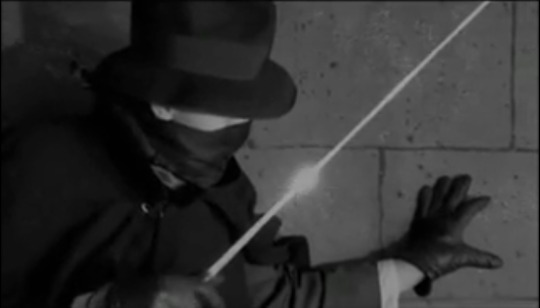
Curse of the Living Corpse isn't very good, but it's a bit better than The Horror of Party Beach. It actually starts out strong, with the moody funeral procession and the will telling us what awful fate we can expect to befall each of the mourners. The characters are mostly nasty, selfish people, but that's okay – we already know they're going to die, so we might as well feel they deserve it. Bruce is vain and lecherous; Phillip is a lush and Vivian is just waiting for him to drink himself to death so she can be a wealthy widow; Abigail is a paranoid, neurotic wreck; and Lettie a frivolous bimbo. Unfortunately, as in The Horror of Party Beach, the characters we are supposed to like are almost entirely nonentities. These are brown-nosing cousin Robert and his dim but pretty wife Deborah, whom we know nearly nothing about because the movie is far more interested in their spiteful relatives. They're only in this movie so that the Sinclair fortune can go in the end to people we feel deserve it.
Although it starts well, the movie gets worse and worse as it goes along. The first death, of Lettie the maid, is entirely gratuitous (she wasn't even mentioned in the will) but comes closest to being scary. From there it's all downhill, as the murders get more and more contrived and the Comic Relief Cops get involved – oh, yes, the tradition of unfunny comic relief detectives goes back years before Last House on the Left, and was just as effective at killing the mood.

The final blow to the movie's credibility is the ending, which is just ridiculous – we're told that a particular person was the real culprit, and yet several of the murders were committed when we the audience knew perfectly well this individual wasn't even at the scene! It's true that we weren't actually watching him at that very moment, but he was with others when we last saw him, and those others are still there when news of the murder arrives. It's very hard to see how the killer could have left, done the deed, changed his clothes, and returned just moments ahead of the discovery without somebody catching on. The existence of the secret passage is not a satisfying answer. Then there's the question of how the murderer knew where people would be and when they would be there so they could die in a suitably ironic fashion. Honestly, Curse of the Living Corpse would make more sense if it were about a zombie.
A thousand smaller sillinesses go by as the movie makes its slow, steady way down Quality Hill. The murderer dresses like Zorro, which I'm pretty sure the brains would have kept funny long after it ought to be stale. There's the sound of hooves on cobblestones dubbed in over horses trotting on dirt, and it goes on just a fraction of a second after the animals have stopped moving. Vivian has some very un-Victorian shoes and her struggles in the bath tub are not nearly so much about escaping as they are about never letting the camera see her nipples. Bruce Sinclair appears to be about the same age as his mother. Two reveal jump-scares are wrung from the same severered head – I imagine Mike reacting to this with an unimpressed, “yep, still there.” How in god's name did the killer get back into the crypt after locking it from the outside? And what happened to Rufus Sinclair's body? It's not important to the plot, but I wanted to know.
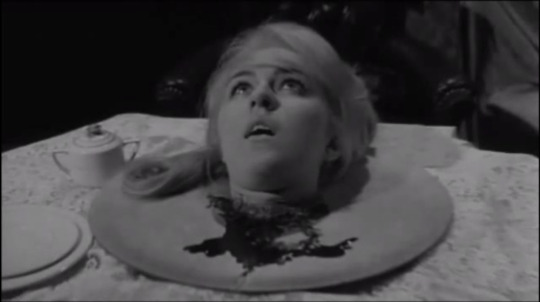
The inspiration for Curse of the Living Corpse appears to have been a strange phenomenon of the 18th and 19th centuries. Victims of cholera were usually buried very quickly in the attempt to keep the disease from spreading – however, in an age before autopsies and embalming were around to finish off the not-quite deceased, a few of these people inevitably turned out to be only mostly dead. There were cases of supposed corpses sitting up at their own funerals, or knocking on the coffin lid as it went into the grave. Tales spread of graves being dug up to find that a man who was clean-shaven when he died had grown a beard, or of bloodied hands as people died still trying to claw their way through the coffin lids. This prompted a mass fear of being buried alive, and people began to take precautions against it.
The most famous and elaborate of these is probably the alarmed coffin, which had a tube and string leading to the surface so that the prematurely interred could ring a bell to alert somebody. Other people had a telephone wire installed with a speaker so they could call for help. Much more common, however, were people like Rufus Sinclair, who simply specified in their wills that they could not be buried until a certain number of days after death. I'm pretty sure the writers of Curse of the Living Corpse read about this and decided there was definitely a horror movie in there somewhere. Pity they couldn't find it.
If Curse of the Living Corpse has a theme or moral, it's probably about family and loyalty – no matter how much of a jerk Rufus Sinclair was, he was still the patriarch, and his family should have respected his last wishes. The will notes that cousin Robert 'acted as I wish my sons had'. This and the description of Deborah as 'chaste' is the only real indication we get that they were the nice people who deserve the inheritance. There are multiple levels, however, on which this just doesn't quite work.

For one thing, Robert and Deborah were present at the original funeral, and were party to the neglect of the will. It stated that Robert was responsible for making sure the rest of the family saw to Rufus Sinclair's conditions for the treatment of his body. It's clear that Bruce and Philip were primarily responsible for wanting their father buried as quickly as possible, but we never see Robert or Deborah make even a token protest. Indeed, their survival seems to have been pure chance: the killer just never got around to them before he was discovered.
Meanwhile, others with a better claim to innocence than cousin Robert and his wife nevertheless suffer for their disrespect. Lettie the maid is the first to go, but as I noted above, her death wasn't called for in the will, which never even mentions her by name. In fact, even when we find out who the real killer is and his motive, murdering Lettie still doesn't make much sense. She was only going to inherit a couple of dollars at best, and she didn't catch him in the act of doing anything nefarious – all he had to do was wait five minutes, and she would have been gone. Seth the coachman was opposed to the quick burial, and indeed tried to keep to the terms of the will even against his employers' orders. He still died.
The real problem with familial piety as a theme, however, is the final scene, in which we learn that the culprit had in fact been planning this for years. He wanted to inherit the family fortune alone, and used the terms of the will to blame his killing spree on the supposedly undead Rufus. This leads the audience to wonder how he knew what was in the will, when everything outside of the instructions for burial seems to come as a surprise to the family – but it also makes it evident that he would have tried to murder everyone whether the will were respected or not. True, he had a major role in the decision to disrespect it, but he could not possibly be sure everybody else would go along.
For all that, however... I kinda liked Curse of the Living Corpse. Much like Horror of Party Beach, it's enough fun that its sins against logic can be mostly ignored, or enjoyed as part of the camp. Curse also has a bonus amusement in its 19th century setting: anachronisms pop up frequently, and they're always good for a giggle. It certainly would have made for a fantastic episode – particularly if we got to see Crow in a Zorro costume, trying to sneak up on Mike and Servo as they always move aside just moments before his claws can close around their necks!
6 notes
·
View notes
Text
Genesis 41
Genesis 41
1 It happened, at the end of two
Full years, that Pharaoh had a dream,
Behold, he stood along near to
The river. 2 At once out of stream
There came up seven cows, and fine
Looking and fat, and they would dine
Upon the meadow. 3 Then indeed,
Another seven cows stampede
After them from the flood, and they
Were thin and ugly in their way
And stood beside the other cows
Upon the river bank to browse.
4 The thin and ugly cows ate up
The seven good-looking for sup
And fat cows. So Pharaoh awoke.
5 He slept and dreamed a second stroke,
At once seven heads of grain grew out
On one stalk, plump and without doubt
Good. 6 Then indeed, seven thin and blighted
Heads, blighted by the east wind sighted,
Sprang up after them. 7 And the thin,
Those seven thin heads devoured in
A brief space the seven plump and full.
So Pharaoh woke from fanciful
Dream. 8 Now it happened in the morning
That his spirit in him took warning,
And he sent and called for magicians
All of the wise men and physicians
Of Egypt. And Pharaoh told them
His dreams, but none found stratagem
To tell Pharaoh their theorem.
The Pharaoh's dreams sound like nightmares to me,
But I wonder why such are held to be
Signs of the future or of meaningful
Content. I see dreams as acceptable
And brief insanity during one's sleep.
True many tribes think madnesses do keep
The inspirations of the gods. Perhaps
You use, Beloved, at times the pagan lapse
To further Your own will. All things work for
Your purposes, the evil and what's more
The good that people do in pride. Lead me,
Beloved, in waking or in sleep, to be
A walker in Your will beside the stream
Of cows and corn for future and for dream.
9 Then the chief butler spoke to him,
To Pharaoh, saying "My faults grim
I now remember on this day.
10 "When Pharaoh's anger was in sway
Against his servants, he put me
In the guard's captain's custody,
In that house both chief baker and
Myself together, 11"We each scanned
A dream in one night, he and I.
Each of us dreamed to prophesy.
12 "Now there was a young Hebrew man
With us there, servant of captain
Of the guard. And we told him, and
He told dreams' meanings on demand
For us, to each interpreted
According as his own dream led.
13 "And it happened, just as he said
So it happened. He restored me
To my office, corroboree
He hanged for his long history."
Now think of this, Beloved, when You give doubt's
Benefits to the butler in his clouts.
He lies, I say, when he says he forgot
The service Joseph rendered when his lot
Was not so good. The men promoted do
Not wish to think of those who put them there,
But wish to disremember favours due.
Note well he did remember fine and fair
As soon as he could raise his own position
Before the king with the improved condition
Of his lost memory. Let me beware
Of officers official everywhere.
Beloved, promote Your sovereignty on earth
As One alone, knowing officers' worth.
14 Then Pharaoh sent and called Joseph,
And they brought him quickly by clef
Out of the dungeon, and he shaved,
Changed his clothing, came well-behaved
To Pharaoh. 15 And the Pharaoh said
To Joseph, "I have had a dream,
And there's no one can tell its theme.
But I have heard it said of you
That you can understand what do
Those who interpret dreams, those few."
16 So Joseph answered Pharaoh, saying
"It is not in me, no delaying,
Ælohim will give Pharaoh peace
In answer to his dream's caprice."
Now I suppose this means to shave both head
And beard, Beloved, as pictures I have read
Upon the walls of the Egyptian tombs
Deep buried in the pyramidal glooms.
Is not shaving abomination and
Prohibited by Your divine command?
Shame, shame on Joseph for defiling act
Of cutting off his beard just to react
To what the king and court expect of him!
My picture of this action remains dim,
Unless, Beloved, externals in Your view
Are not so rampantly required to do.
Then why did You require removing shoe
When there was only Moses there and You?
17 Then Pharaoh said to Joseph, "Lo,
Indeed, in dream I stood to know
On the bank of the river. 18 "So
Suddenly seven cows came up
Out of the river, fine for sup
And good looking and fat, and they
Fed in the meadow by the way.
19 "Then behold, seven other cows
Came up after them there to browse,
Poor, thin and ugly such as I
Have never seen in Egypt's lie.
20 "And the thin, ugly cows ate up
The first seven, fat cows out to sup.
21 "When they had eaten them up, no
One would have known they'd seen the show,
For they were just as ugly as
At the beginning. So as has
Happened, then I awoke. 22 "Also
I saw in my dream, suddenly
Seven heads came up on one free
Stalk, full and good. 23 "And then indeed,
Seven heads, withered, thin, and blighted
By the east wind, followed in seed.
24 "And the thin heads devoured the good.
So I told magicians enlighted
To explain it, but no one could."
Perhaps the reason no doctor could say
What Pharaoh's dreams meant in the light of day,
Despite their awful portent in the dark,
Was simply they were madness, madness stark.
It's only You, Beloved, can touch insanity
And give it sense, and send cosmology,
Reflecting more the quirks of human mind
Than any truth or its reality,
To home and heart as if an arrow blind
Had hit the mark. Ah yes, the stony flint
Is always blind. The human heart has glint
Of truth not for blind reason nor instinct,
But because You, Beloved, in faith once winked
And kings awoke, and prophets not extinct.
25 Then Joseph answered Pharaoh's speech,
"The dreams of Pharaoh are one, each
Means just the same, Ælohim's shown
Pharaoh what He's about to do:
26 "The seven good cows are not alone
Seven years, but seven good ears
Represent also seven years,
And so the dreams are one and true.
27 "And the seven thin, ugly cows
That came up after, it allows,
Are seven years, and so the ears
Empty and blighted by the east
Wind are also those seven years
Of famine without bread or yeast.
28 "This is the thing which I have spoken
To Pharaoh, before he'd awoken.
Ælohim has shown Pharaoh what
He is about to do in plot.
29 "Indeed seven years of great plenty
Will come to all Egypt, not twenty.
30 "But after them seven years of
Famine will come, but not above,
And all the plenty'll be forgotten
In all Egypt for famine gotten.
31 "So the plenty will not be known
Because of what the famine's shown,
For it will be very severe.
32 "And the dream came twice to appear
Because Ælohim's done the thing,
And it will soon come on the king.
Beloved, I have enjoyed the bounteous plenty
Bestowed on me, that could have been for twenty.
I've known the seven years of wealth and food,
I've also seen about me famine's brood.
This world is made of light and dark but yet
In life and death there is one thing to get,
Which is the only thing that can be taken
By the soul that before death's shroud is shaken,
And that is love of You, Beloved, set free
From reward and fear of calamity.
Let me love You despite the thick and thin,
Despite the peace or trouble that I'm in.
Let me not even seek Your love for me,
Since I am satisfied to love and be.
33 "Now therefore, let Pharaoh select
One wise and discrete to protect
And guide the land of Egypt through
The crisis. 34 "Now let Pharaoh do
This, and let him appoint men to
Collect one-fifth of all the land
Produces in the good years' stand.
35 "And let them gather all the food
Of those years coming that are good,
And store up corn in Pharaoh's hand,
And let them keep food in the land.
36 "Then that food shall be as reserve
When the seven years of famine serve
The land of Egypt, that the land
May not perish by famine's hand."
What did poor Joseph then imagine in
The land of Egypt without kith or kin?
That there were men discreet and wise to find?
No, one cannot find anywhere that kind.
The men of Pharaoh were like butler able
Only to think of their own fame and table.
The statesman of today as well as priest
Is selfish every one from great to least.
There's none that would not steal the coffers blind
And put away the corn in his own rind.
Let Africa burn foodless for the art
Of curing tobacco so those who fart
Tobacco smoke may do so at their ease.
Beloved, look down in judgement upon these.
37 The thing was good in Pharaoh's eyes,
And in the eyes of all his men.
38 And Pharaoh said to them again,
"Can we find such a man as wise
As this, a man in whom there lies
Ælohim's spirit's regimen?"
39 Then Pharaoh said to Joseph, "Since
Ælohim has shown you the prints,
There's none discreet and wise as you.
40 "You shall be over my house too,
And all my people shall be ruled
By your word, but not to be fooled
Only I in the throne shall be
Greater than you in majesty."
41 And Pharaoh said to Joseph, "See,
Now I have set you over all
The land of Egypt gate and wall."
Imagine, my Beloved, Joseph's surprise
To be instated ruler before eyes
Of all the Pharaoh's men as well as wives.
The wives knew all the stories and contrives.
The rub is to be faithful despite all
The gold and power that have a siren call.
Joseph was able to preserve his soul
And keep his body chastely in control
When he was forced it seemed to do as slave
As his mistress commanded to behave.
Can he now do the same again when faced
Not with compulsion but with honour placed
On those who fail to cherish purity?
Beloved, be his and mine for surety.
42 Then Pharaoh took his signet ring
Off his hand and put it upon
Joseph's hand, his apparelling
Was fine linen in which to don,
And Pharaoh put a gold chain round
His neck. 43 And he had him ride in
The second chariot from his inn,
And as he rides before him sound
The cry to "Bow the knee!" So he
Set him to rule all he could see.
44 And Pharaoh said to Joseph, "I
Am Pharaoh, and without your hie
No man may lift his hand or foot
In all the land of Egypt put."
The word is power, Joseph was given power,
The worst thing a man can have for an hour,
Much less for days and years. Beloved, the test
So far shows Joseph among men the best.
And yet the righteous prophet wears the gold
The king has given him, is virtue sold?
The Muslim law contends man shall not wear
Gold, only women have that right and fair.
By Joseph's lone example gold can be
Worn by a man and that man yet go free.
Traditions of men it is known and well
Conflict with divine revelation's spell.
Yet giving value to gold comes too close
To idol worship for both sexes' dose.
45 And Pharaoh called Joseph's new name
Zaphnath-Paaneah, for fame
As revealer of secrets came.
And he gave him as wife one named
Asenath, daughter of the famed
Poti-Pherah the priest of On.
So Joseph went out all alone
To rule beside Egyptian's throne.
46 Joseph was thirty years old when
He stood before Pharaoh king's men,
The king of Egypt. Joseph went
Out from Pharaoh's presence and sent
Throughout all the Egyptians' land.
47 Now in the seven years of grand
Production the ground brought forth well.
48 So he gathered all he could tell
Of the food of the seven years which
Were in the land of Egypt rich,
And laid up the food in the cities,
He laid up in every city
Food of the field and committee
Which was around without bandittis.
49 Joseph gathered very much corn,
As the sand of the sea, no bourn,
Until he stopped its counting, for
It was immeasurable and more.
The daughter of a priest of Egypt was
The mother of two tribes of chosen claws.
Monolatry is something Abraham
Himself regarded as the great I AM.
What differences lay in worship here
Is something that does not quite well appear.
Did Joseph make concessions to the art
Of heathen worship to play well his part?
You do not tell me so, Beloved, so doubt
Is not the better side of in and out.
In any case no heathen god could stop
His gathering of corn for store and shop.
He gathered more than numbers in the speech
Of Egypt for corn, cane and plum and peach.
50 And to Joseph were born two sons
Before the years of famine came,
Whom Asenath, for benisons,
Daughter of Poti-Pherah, same
As priest of On, bore to his claim.
51 Joseph called the name of the first
Born Manasseh: "For as I durst
Ælohim has made me forget
All my toil and my father's home."
Thus Manasseh meant God would let
Him forget how he had to roam.
52 And the name of the second he
Called Ephraim, which means to be
Doubly fruitful: "For Ælohim
Has caused me to be and to seem
Fruitful in the land of distress."
53 The seven full years that did bless
The land of Egypt ended, 54 and
The seven famine years' command
Began to come, as Joseph said.
The famine was in all lands spread,
But in all Egypt there was bread.
55 So when all the land of Egypt
Was famished, people were equipped
To cry to Pharaoh for their bread.
Then Pharaoh said to all the folk,
"Go to Joseph, and what he spoke
Do." 56 The famine was over all
The face of the earth in its thrall,
And Joseph opened all the stores
Sold to Egyptians at the doors.
And the famine became severe
In the land of Egypt for fear.
57 So all the countries came to buy
From Joseph in Egypt, the cry
Of famine was loud and severe
In all the lands it did appear.
It may have seemed creative policy
To gather corn as tax when corn was free,
And then to sell it back to citizen
At a good price for every specimen.
But that was recipe for social mire
Before the people would at last retire.
Creating slavery could aye backfire,
And no doubt helped to cause the problems with
The people who arose in later myth.
The famine made the state monopole
And turned free men to slaves' commodity
That they might eat what they themselves had grown.
Here Joseph is not innocent alone,
But civil servant's heart cuts his in stone.
0 notes
Text
New and Improved Geometry Widget Released
Author: Ethan Hall, Founder, DUDAMATH
DUDAMATH is proud to announce the new version of the geometry widget. This version includes the following major upgrades and improvements:
improved performance and accuracy of the geometric engine
support for circles
undo and redo support
the addition of a snapshot function for annotation and saving
interface and behavior improvements to make the widget more user-friendly and intuitive
a better help tutorial for users

Many of these improvements have been on the project’s to-do list from early on in the platform’s development. Several have also featured on teacher wish lists for a while and have been implemented in response to user feedback.
The added value of these improvements is self-evident, and you can learn more about these in the new help tutorial. So rather than devote too much word count to describing the upgrades, this post reveals the story behind the DUDAMATH geometry widget. You’ll learn about the thought that went into developing this unique tool and why it is such a great addition to the classroom.
First generation prototype
I created the DUDAMATH geometry widget over the summer break three years ago with the original intention of making it a stand-alone trigonometric calculator app.

In this prototype app, students could create geometric sketches and input segment and angle sizes (highlighted in light blue in the “given” list in the image above). Based on what was known at each stage, the tool displayed a list of all the “solvable” angles and segments (highlighted in pink in the image above), the sizes of which could be derived by means of trigonometry, the Pythagorean theorem, or just plain angle/length arithmetic. When students clicked on these items, the tool automatically calculated the values and displayed these in the “solved” list (highlighted in green in the image above). Students could click on these calculations and view them in color-annotated, step-by-step detail. As more sizes were solved, the “solvable” list was updated, possibly showing new items that could be solved based on the new information.
The app helped students plan and execute multi-step solution of complex problems, for which the output of one step is used as input for the next. Its focus was, as it were, on “seeing the forest for the trees.”
Disappointment and lessons learned
The app was useful for demonstrations. It got caught, however, in a pitfall common to many automated “math solver” tools. Day to day, smart apps that do things for us with a click of a button or a simple voice command are pretty handy. But that doesn’t necessarily hold true in education. While students appreciated the app’s ready-made reference solutions, they were frequently passive and unengaged in the activity. They weren’t actively learning.
This experience with the early prototype app served as an important lesson in how technology should and should not be used in education. In a broader sense, it was a reminder of one of the teacher’s major commandments—don’t overteach. While we teachers should be proactive and purposeful, we must remember we should never do the learning for our students. As the old proverb says, “The teacher can show the path, but the student has to walk it.”
The silver lining
So, initially, the app didn’t quite do what it was intended to do. There was, however, a fortuitous bright side: the app’s sketching feature.
With common geometry tools, creating illustrations for given geometric/trigonometric problems is often tedious, requiring careful planning and “reverse engineering” of the desired result. A classic example is sketching a triangle with three given sides, which requires the plotting and intersecting of two circles. Virtually all geometric tools are geometric construction-based; they’re essentially modern versions of ye olde compass and ruler. Geometric construction is fundamentally important in mathematical education, but it can sometimes be cumbersome. Just like starting a fire: doing so with flint and tinder is awesome and educating, but you’d usually rather use a lighter and burner for other chemistry class setups.
The trigonometry app explored a completely different approach for creating sketches more intuitively. In the traditional hierarchical approach, there is a unidirectional dependency between elements, according to their order of creation. In contrast, the app’s approach was non-hierarchical with element interdependence. Using freehand, the user input the elements and sizes. The sketch then self-adjusted to match the constraints the user had defined. No longwinded plotting required!
This sketching mechanism wasn’t intended to be the app’s main focus. It was solely meant to be a quick and simple way to plot problems for students to work on. However, it turned out to be the more exciting and engaging feature. I started to realize the potential for this sketching tool to help students better interact with and explore geometry (although, admittedly, it took some time to overcome a degree of annoyance with students playing with this feature instead of doing what they were “supposed” to do!).
Second generation: widget in the DUDAMATH platform
The two main takeaways from experimenting with the initial trigonometry app were to:
dump the automatic solver and let students actively deal with expressions
expand and enhance the sketching functionality to unleash its potential for learning geometry as well as trigonometry
The first takeaway was achieved by better integrating the app with the interactive expressions technology at the heart of the DUDAMATH platform. This interactive expressions tool was, itself, initially designed to be a stand-alone app, with a focus on equation solving. However, over time it has evolved into a fully integrated workspace platform, supporting multiple and complex interrelated expressions. While I started out by trying to replicate this functionality in a stand-alone geometry app, it soon became obvious that integrating geometry as a widget in the DUDAMATH platform was the best and most straightforward solution for users.
As already noted, the app’s sketching mechanism greatly encouraged student engagement and learning. Consequently, the sketching interface and geometric engine have been improved dramatically, and these can now deal with multiple situations and scenarios. Integration of the geometry widget into the wider DUDAMATH platform has led to many useful features. For example, givens can be dragged from the geometry widget into expressions and formulae, and users can create expressions that include geometrical measurements and which can be evaluated and updated in real time as sketches are modified.
As the interface and the underlying engine have become more powerful, new and exciting uses for the geometry widget have emerged. Students can hypothesize geometric theorems (to be later proven more rigorously), or they can try to reject suggested theorems by setting some constraints and moving things around, noticing what properties are unavoidable or unattainable under the given conditions.
The 2.5 generation: a new and improved version
When the DUDAMATH platform was publicly launched last year, the geometry widget was still a little rough around the edges (although its demonstrated value far outweighed its limitations). For example, one drawback of the widget’s intuitive sketching feature is that it is much harder to implement algorithmically than the traditional, more deterministic approach. In certain complex and contrived situations it can generate “false negatives” in which it might fail to find a valid arrangement that satisfies the given constraints even though a valid solution does exist. As Patrick Honner points out in his post When Technology Fails, while technological tools have their shortcomings and quirks, these “failures” serve as excellent learning opportunities!
The good news is that this new version of the geometry widget, besides providing some much-needed new features, includes significant enhancements to the geometric engine. Those rough edges have been smoothened, and the “false negatives” have been significantly mitigated. The DUDAMATH geometry widget delivers on the promise of being a unique, exciting, and effective learning tool that benefits both teachers and students.
Whether you have used the geometry widget before or not, go play with the new version and let me know what you think.
0 notes
Photo

Monster on the Campus
This movie has one of the best MST3K pedigrees I’ve seen. The cast includes Whit Bissell, the mad scientist from I Was a Teenage Werewolf, and director Jack Arnold also brought us Revenge of the Creature and The Space Children (and four episodes of Love, American Style). That alone would qualify it as an Episode that Never Was, but wait... there’s more! Monster on the Campus boasts a veritable menagerie of background weirdnesses that the Brains could have gone to town on, including an inexplicable bust of Genghis Khan, a woman who appears to have her dress on backwards, and a door in constant use despite being marked USE OTHER DOOR. Add a werecreature plot even more bizarre than Track of the Moon Beast and I am at an utter loss for how they managed to miss this one.
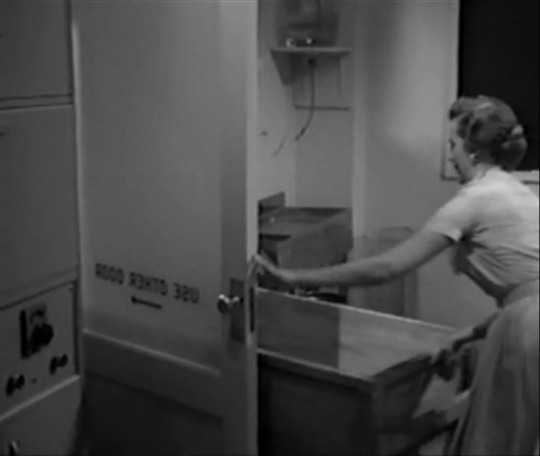
Professor Donald Blake (no, not that Donald Blake) is a paleontologist who has just received an exciting new specimen: a preserved coelacanth, all the way from Madagascar! He hopes this will take him down roads of science few have ever trod, and oh, boy, will it ever. When Blake cuts himself on the prehistoric fish’ teeth, he transforms into an ape-man and sets out on a rampage. The police investigate his trail of murder and vandalism, while the coelacanth (which Blake pronounces 'silla-canth') continues to infect anything it touches with a sort of de-evolution, like the Star Trek: The Next Generation episode Genesis except much, much sillier.
I didn't think coelacanths actually had teeth, but I googled it and it turns out they do. This is possibly the most scientifically accurate part of the movie. The rest of Monster on the Campus' science is on a par with things like the carbon-dated metal statue in Terror from the Year 5000 or Glenn Manning's single-celled heart in The Amazing Colossal Man. As a major part of its premise, this film proposes that somehow, coelacanth blood actually resists evolution.
This is really, really not how evolution works. If you could sequence the genes of a modern coelacanth and compare them with those of its ancestors eighty million years ago, you'd find that genetically it's about as closely related to them as we are to whatever little possum-like creatures were around back then. Coelacanths might look like they haven't changed, but that's simply because, like sharks or cockroaches, they have happened upon a body plan that works so well for what they do that there's been no reason to change it. Instead, the tweaking happens on the inside – mutations accumulate whether they cause physical changes or not, and modern coelacanths must deal with completely different environmental conditions than prehistoric ones. Factors like predators, prey, temperature, ocean and atmospheric chemistry, and diseases are changing constantly and means that coelacanths must evolve, even if they do so where we can't see it.
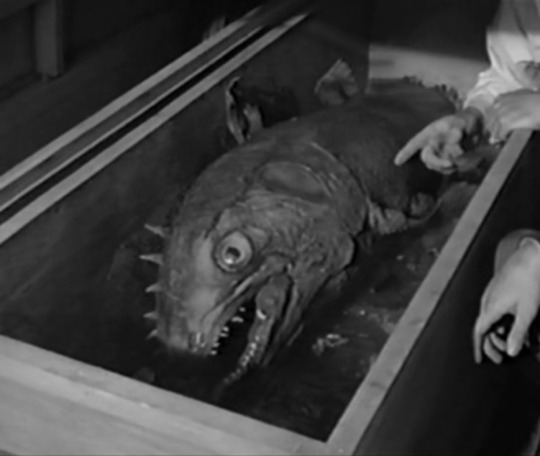
Another thing this movie apparently believes about evolution is that creatures in the past were innately angrier and more violent than modern ones. We see several 'primitive' life forms over the course of this story: a saber-toothed German Shepherd that apparently represents the ancestor of modern dogs (and makes about as much evolutionary sense as the saber-toothed squirrel in the Ice Age movies), a giant dragonfly, and the caveman Dr. Blake becomes. All three are shown attacking anything that moves, and sometimes things that don't. There is some implication that the caveman has access to Blake's memories even it can't make sense of them, but its reaction to the things it thus 'recognizes' is still violence. The idea that the past was 'brutal' and modern man must overcome his instincts to progress is a constant running thread in the movie.
This is taken so far, however, that it leaves the viewer wondering – if we evolved from such violent creatures, how did we ever get to where we are? An argument might be made that the prehistoric dog was vicious because it had not yet been domesticated. Fine, but how were humans domesticated? How did the ape-man we see ever stop smashing, raping, and killing long enough to settle down and invent civilization? Its behaviour shows very little evidence of what we'd recognize as intelligence. Maybe the female was a civilizing influence. We never see a prehistoric woman in the movie, and Dr. Blake's display of 'the faces of man' inadvertently implies that woman is the highest form of human evolution. If, as the stereotypes tell us, men are intrinsically domineering and violent while women are supposed to be kind and nurturing, maybe the more feminine humanity becomes, the better.
Oh, wait, there's one more thing the movie's science gets right: the idea of preserving tissues through irradiation. This works exactly the way Blake explains: by killing off all the bacteria in the target material. It's actually a very safe and effective way to prevent food from spoiling – it never really caught on, however, probably mostly because of movies like this one spreading the idea that radiation = oh god, oh god, we're all gonna die.
If we can accept all that, however, the movie is actually very entertaining. The music is pretty good and the effects are not convincing, but they're fun to look at. The caveman doesn't appear on screen until nearly the end, but this is done in such a way that it is suspenseful rather than annoying. We know that something strange has happened to Dr. Blake, and that it's equivalent to what became of Samson the dog and the dragonfly – but the characters don't, at least not at first, and their conclusion that Blake is being stalked by an unknown enemy is an entirely reasonable one given the facts they have. The theory becomes harder to fit to the facts as more facts appear, and the police struggle to keep it plausible. The dog and the dragonfly give us some monster action to keep us interested while we wait for the big reveal.

The reveal itself is not as satisfying as it ought to be, because the caveman makeup is pretty damned bad. The mask almost looks more like a werewolf than an ape-man. The way Blake gets his doses of coelacanth blood is also pretty contrived. The first time, when he cuts his hand on the fish' teeth, kind of works, but the second time, he allows blood to drip into his pipe and them smokes it. This is hilarious in both concept and execution, and even Blake, discussing his theory with his superiors, dismisses a second accident as unlikely.
Donald Blake himself is a reasonably sympathetic character, both the hero and the villain of his own story. We never entirely like him, but that's mainly a product of the movie's age. The first line we hear him say is as he makes a mold of his girlfriend's face to add to his 'faces of man' exhibit - “the female in the perfect state – helpless and silent!” This probably seemed harmlessly funny in the 50's – in the 21st century it makes him seem like a pig and it's kind of an uphill struggle to regain any respect for him. The slow burn of him figuring out who the monster is, and the confusion and terror that accompany it, help a lot – as does the behaviour of his colleagues, who understandably think he's going nuts.
At the end of the movie, Blake decides to perform an experiment – he will inject himself with the coelacanth blood a third time and see what happens. He records a last message, saying “I pray only for the courage to destroy the monster within me.” Sure enough, the caveman re-emerges and threatens Blake's girlfriend Madeline. Upon seeing the photographic evidence, he convinces his colleagues to shoot him, so that the monster will die with him.
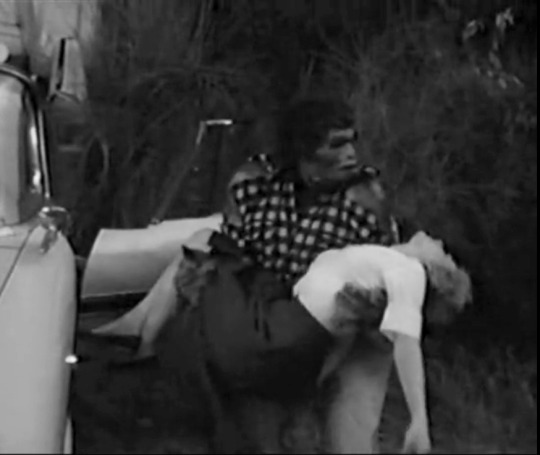
I think we're supposed to consider this a tragedy: like Oedipus, Blake could not stop pursuing the truth, and the truth in the end destroyed him. The problem with this is that his suicide seems, quite honestly, totally unnecessary. To keep from committing any more violent crimes, all Blake would have to do is not come into contact with radioactive coelacanth blood, and it doesn't seem like this ought to be a difficult substance to avoid. In fact, he probably has the world's entire supply right there in his lab – burn the damn fish, and you're done! Committing suicide over a problem that easy to solve is the act of a drama queen, Dr. Blake.
It's especially ridiculous when this movie's entire point is that the capacity for brutal violence is latent within all of us, just waiting for an excuse to bubble to the surface. Is the movie trying to say that we should all kill ourselves to avoid the crimes we might commit? I could probably kill somebody if I felt it was necessary – do I deserve to be pre-emptively locked up for that? Blake seems to know that he's not responsible for what his prehistoric alter-ego does, even if the irrational part of him feels guilty regardless. Certainly he doesn't blame Sampson the dog for nearly attacking Madeline while under the influence of the coelacanth blood, so why blame himself? The point made earlier in the movie was that we must resist our urge to violence, to choose to evolve away from it – but rather than rejecting his animal nature, Blake seems to lose all hope of ever doing so.
Confused as the movie is, this is one of the good ones. It had me on its side from the moment it included a Meganeura, one of my favourite under-used prehistoric animals – but even outside of that it's a fun story that keeps the audience engaged. It's definitely not perfect, but the annoying parts don't annoy me enough to detract from the fun ones. Any lover of silly 50's sci-fi should definitely check out Monster on the Campus.
#mst3k#reviews#monster on the campus#episodes that never were#tw: suicide#50s#we're running out of plots#curiously caucasian cavepeople
13 notes
·
View notes